The SEND Offer Outlining our school’s offer for children and young people with Special Educational Needs and Disabilities (SEND)
Our offer for children and young people with Special Educational Needs and Disabilities (SEND) was updated in March 2024. It will be reviewed in March 2025.
Please click here: Tower Hamlets Local Offer to access more information on SEND and events
Mulberry Stepney Green Maths, Computing & Science College
Our vision and how we hope to achieve it
Our vision is for all individuals at Mulberry Stepney Green Maths, Computing & Science College to be successful learners, who enjoy learning, make progress and achieve. Together we aspire to become creative, confident people who are able to live safe, healthy and fulfilling lives, thus ensuring we are all responsible citizens who make a positive contribution to society.
We are an inclusive mainstream secondary school, admitting students from 11-19. We have students with special educational needs in all our year groups, including our sixth form.
We are committed to providing an appropriate and high quality education for all our students. We believe that all children and young people – including those identified with special educational needs and disabilities – have a common entitlement to be fully included in aspects of school life and must have access to a broad and balanced academic and social curriculum.
People who support those with special educational needs and disabilities in this school
Special Educational Needs & Disability (SEND) is the shared responsibility of our teachers, teaching assistants and support staff, administrative staff, parents and carers, and the local agencies.
The SEND Faculty Administrator: Ms Leanne Goodey
The Head of the Learning Support Faculty & SENCo: Ms Reda Miliauskiene
Learning Support Centre Manager: Mr Imamul Hussain
Assistant SENDCo: Miss Nishat Hussain
The Assistant Headteacher leading on Inclusion: Mr Farid Patel
Class teacher
Responsibility Responsible for: Knowing the needs of your child and planning lessons and assessments accordingly to ensure these needs are met. Ensuring that all children have access to good teaching and that the curriculum is adapted to meet your child’s individual needs (also known as differentiation). Checking on the progress of your child and identifying, planning and delivering any additional help your child may need, and discussion of amendments with the SENCo as necessary. Contributing to, and following, the plans to support your child (IEPs – Individual Education Plans) for children with Education, Health and Care Plans or Support Plans. Ensuring that all members of staff working with your child in the classroom are aware of your child’s individual needs and/or conditions and what specific adjustments need to be made to enable them to be included and make progress. Type of Support Quality First Teaching for ALL Students incorporates the following:
- Differentiated curriculum.
- Differentiated delivery.
- Differentiated outcome.
- Modified and adapted resources.
- Increased use of visual aids: prompts, timetables, time management plans, diagrams, pictures, etc.
- Writing frames.
- Alternative methods of recording.
- ICT access with appropriate software.
- Sensitive groupings / buddies.
- Word banks, and pre-teaching of vocabulary.
- Carefully designed worksheets.
- Carefully structured school routines and classroom rules.
- Whole school behaviour policy.
- Whole school rewards policy.
- Use of positive language to promote self-esteem.
- PSHE programmes.
- Wellbeing and involvement assessments and tracking.
- Coloured overlays and paper.
- Specific literacy focus in each lesson.
Form Tutor
Responsibility
Running tutor time to promote school ethos and ensure a positive start to the day. Taking the register to monitor attendance and ensure safety. Managing punctuality to ensure all students access learning. Communicating important information to students. Encouraging students to make the best of all the support and enrichments activities offered within school. Managing uniform to maintain a consistent school identity. Checking planners. Ensuring good home-school communication. Providing reports to parents, and consulting with parents on Academic Tutoring Days.
Type of Support
Seeing your child every day, the form tutor gets to know your child very well and has a unique overview. The primary role of the Tutor is to oversee the academic, pastoral, and personal development of all students within your child’s Tutor Group.
SENDCo
Responsibility
Responsible for: Coordinating support for students with Special Educational Needs and/or Disabilities (SEND) and developing the school’s SEND Policy to make sure all the students get a consistent, high quality response to meeting their needs in school. Ensuring that you are: Involved in supporting your child’s learning. Kept informed about the support your child is getting. Involved in reviewing how they are doing. Part of planning ahead for them. Liaising with all the other people who may be coming into school to help support your child’s learning – the Speech and Language Therapist, the Educational Psychologist, for example. Updating the school’s SEND List (a system for ensuring all the SEND needs of students in this school are known) and making sure that there are helpful records of your child’s progress and needs. Providing specialist support for teachers and support staff in the school so they can help children and young people with SEND achieve the best possible progress in school. Ensuring class teachers and pastoral staff are aware of the needs of individual students. Advising class teachers and pastoral staff of recommended strategies to support individual students with SEND.
Type of Support
External Agencies that advise us on how to manage students’ needs:
- Mr Jinn Low, Speech and Language Therapist (1 full day per week)
- Educational Psychologist – 10 visits per year
- Ms Eve Trestain, Phoenix Outreach Team
- Ms Elena Valizadeh, LBTH Disabilities Team
- Ms Lottie Taylor, LBTH Hearing Impairment Team
- Mr Samad Ali, LBTH Visual Impairment Team
- Ms Janice Swan, Career Advisor (twice a week)
- The LBTH Support for Learning Service for advice for students experiencing Specific Learning Difficulties with reading, writing and spelling
- Behaviour Specialists from Support for Learning Service BASS Team
- CAMHs, the Child and Adolescent Mental Health team
- Stepney City Farm
- The School Nurse team
- The Child and Adolescent Physiotherapy team
- The Parents Advice Centre SENDIASS
- The Social Care team
How does my child have a voice in school?
We are committed to giving our children, and young people, a voice; they should be involved in making decisions which concern them and their learning. With form representatives liaising between their classmates and their Head of Year, and the student council formally meeting to share the students voice, all children are encouraged to be heard. The ways in which children are encouraged to participate reflect their evolving maturity. ‘Person-Centred’ planning and reviewing helps to ensure their views are heard and acted upon. In addition, each student with an Education, Health and Care Plan) has an identified member of staff to help them find their voice, or to advocate on their behalf.
How do you know about my child’s needs?
The primary school tells us: The SENCo makes contact with all the primary schools to request information about students transferring. Visits take place: the SENCo and Learning Mentor will visit primary schools to meet the children and, on occasions, their parents. We take care to follow the advice of the people who know the children best, and we use the advice written in the Year 6 IEPs (Individual Education Plans) to support the student’s transition. We also hold special visit days, in addition to the borough’s Transition Day – to ensure students who may additional support have a chance to feel familiar with their new school.
Parents tell us: We work in partnership with parents; parents have a responsibility to alert us to any concerns they may have about any aspect of their child’s learning and progress. We meet parents formally each term at our Academic Tutoring Days, or Reports Evenings, and we encourage parents to be in contact with us as soon as any query arises.
Class teachers identify needs: The core of the teachers work involves a continuous cycle of planning, teaching and assessing, taking in to account the differences in students abilities, aptitudes and interests. Class teachers have the overall responsibility for the education of all children in their class, including those with special educational needs and disabilities. All teachers must differentiate work to meet the needs of the children in their class. Teachers discuss the ways in which they adapt work when they meet parents formally each term at our Academic Tutoring Days, or Reports Evenings. Often there will be ways in which the parents and wider family network can be supportive, too. Students not making adequate progress will be given further targeted support. The effectiveness of this will be monitored and reviewed as part of the school’s ongoing cycle of assessment, monitoring and review.
How do I know if my child is making progress?
Your child’s Class Teachers and Tutors can tell you: Class teachers report a current level (for students in Key Stage 3) or grade (for those in Key Stage 4) each half-term. This is recorded in the students planner so that it can be shared with parents. Tutors use our ‘On Track/ Off Track’ data to conduct both formal and informal interviews with students about their current academic progress. They guide students through the target setting and levelling sections of their student planner, and help to establish a Personal Education Plan which is reviewed three times a year. At our weekly Inclusion Panel meeting, we adopt a multi-agency approach to sharing concerns about students who are experiencing difficulties, and planning support to help them achieve desired outcomes.
Members of the Inclusion Panel are: Mr Patel, Assistant Headteacher for Inclusion, Student Behaviour & Welfare. Head of Year whose students are the subject of the meeting Ms Miliauskiene, Head SEN Faculty. Mr Hussain, our Learning Support Centre Manager. Mr Smith, Head of English as an Additional Language.
How do I register a concern about a child’s learning or progress?
Anyone can register a concern with the SEND Faculty an adult working with the child in school, a parent or carer, the SENCo or another professional, or the child himself. People referring should try to be as informative as possible and should pay mind to the different areas of concern: approaches to teaching, attendance, relevant background information or family circumstances, behaviours for learning, concentration, co-ordination, hearing, medical needs, readiness to learn, self-esteem, social skills, vision and a range of educational attainments. When a student has been identified as requiring a provision that is additional to, or different from, that made generally for others of the same age, or is showing a significantly greater difficulty in learning than the majority of others of the same age, the student will be placed on the SEND List, registered under one of the four SEND categories:
- Communication and Interaction
- Cognition and Learning
- Sensory and Physical
- Social, Mental and Emotional HealthSensory and/ or Physical Needs.
At this point parents or carers will be informed and invited to discuss the additional support and how best they can assist their child with home-school learning. The provision required for each student will be specific to that student’s needs and where possible the school will seek and follow advice from additional professionals. Where a number of professional agencies are involved a Common Assessment Framework (CAF) will be devised to ensure a cohesive approach is taken towards planning for, monitoring and meeting the student’s needs.
How will my child’s health and general well-being be catered for?
The school SENCo and SEND Administrator co-ordinates the support for children and young people with medical needs and/ or disabilities. Reasonable adjustments are made to ensure our school is an inclusive one, and information is shared sensitively with school staff on a need-to-know basis. Depending on the need, some students health and well-being needs will be supported by the Pastoral Staff, and others will be catered for by the Learning Support Centre staff the Learning Mentor, Specialist Teacher from the Support for Learning Service, School Nurse, and/ or the School Counsellor – through 1:1 work, or small workshops, tailored for the specific needs of the student. Tutors and Teaching Assistants are also tremendously important in early identification of a student’s change in mood, or circumstances. Besides the professionals who make up the Inclusion Panel, we have a variety of ‘safe zones’ for vulnerable students. The Library, the Learning Support Centre, Room 302, the ICT Suite in the Undercroft all provide ‘quiet play’ areas that are monitored by experienced staff.
Staff Training: Staff are regularly kept up to date with information and specific training to meet the wide range of needs amongst our student body. Last year there was training in:
- Child Protection and Safeguarding.
- Teaching and supporting students with Autism, Speech Language & Communication Needs, Moderate Learning Difficulties, Specific Learning Difficulties, Social, Emotional and Behavioural Difficulties, English as an Additional Language.
- First Aid.
- Managing Diabetes.
- Safe Restraint procedures.
How will we include all children and young people on trips?
Part of our mission is to ensure all our students make good academic progress, and ‘become creative, confident people who are able to live safe, healthy and fulfilling lives’. To this end our objective is to ensure a wide range of extended school provision to meet the needs of our school and wider community. We work with the gradually-expanding ‘Stepney Partnership’ to bring together children, families and staff across the partnership schools of primary and secondary to share fun activities, new experiences, understanding of each other, and expertise. All our students are included on our school trips and we often target different groups to ensure all have the chance to experience new adventures and a different way of learning. We make adjustments to accommodate those with additional needs and ensure all feel welcome and comfortable joining in. Rigorous assessments are made to ensure students needs are met, safety is of the highest standard, any risk factors are minimal, and thorough evaluations help to inform future planning. We have established good links with Local Authority teams that help us to better cater for our SEND children, and we offer Independent Travel Training for students who would benefit from it.
About our school environment:
Our school is fully wheelchair accessible we have lifts in all our buildings that extend above the ground floor, and we have ramps for the ground floor access. Several washroom facilities and changing areas for wheelchair-users and people with other disabilities are located throughout the site. Ancillary equipment: magnifiers, talking books, coloured overlays, scanner pens can be made available depending on a student’s needs.
How do we prepare for children and young people joining/ leaving our school?
All students with an Education, Health and Care Plan, have carefully considered transition plans written in collaboration with the students and parents. These plans often involve the feeder/ destination school. We always students and parents have an allocated person from either the Learning Support Team, or Pastoral Team, to provide consistent support and liaison between home and school. All our plans incorporate a process of review so that we can adapt as necessary to better meet the needs of our young people. Our Careers Advisor, Janice Swan, has a long established relationship with our school and the Local Authority. She ensures that every student with a Statement, from Yr8 onwards, is advised on suitable Option choices and various pathways for their future. This level of support is also available to students who demonstrate a particular need, though not Statemented. Our Learning Centre Manager and our Careers Advisor run a programme for students, with parents welcomed along with key staff from Tower Hamlets College to ensure a bridge between school and courses beyond Year 11. Members of staff often accompany students to Open Days to ensure they have access to all the right kinds of information in order to make an informed choice.
How are parents involved in school life?
We place tremendous importance on family involvement in the lives of our young people, and the life of our school. So we are very proud of our Community Project, fully funded by our school, designed to support families in a variety of ways. We believe in a firm partnership between home and school. We will communicate with you through:
- Parents Evenings for sharing your child’s annual report
- Information events held at school
- Academic Tutoring Days Phone calls and letters home
- Newsletters
- Annual Reviews and other meetings held by the SENCo, or your child’s tutor, or Head of YearYour child’s Student Planner is an important communication tool seen each week and signed by one of your child’s Tutors. Our Headteacher offers a surgery – held on Thursday afternoons throughout the academic year We also welcome parents to our Open Days, our Induction interview, our Adult GCSE courses, our Parents Association coffee morning, held each month, and our ‘Strengthening Families & Communities’ programmes held throughout each academic year. Each year we encourage our parents, students and staff, and partner organisations to get involved in planning, contributing and managing our Fun Day, when all members of our community come together to socialise and enjoy!
Who shall I talk to if I would like further information?
For concern about your child’s education, or an issue in school, please contact:
- Your child’s Tutor in the first instance.
- As the primary role of the Tutor is to oversee the academic, pastoral, and personal development of all students within the Tutor Group, your child’s Tutor will want to know of your concern.
If your concern is about a Special Need or disability: Your child’s Tutor will still want to be the first to know. You should also feel welcome to contact the SENDCo: Reda Miliauskiene on 020 7 790 6361 – Mulberry Stepney Green Maths, Computing & Science College


